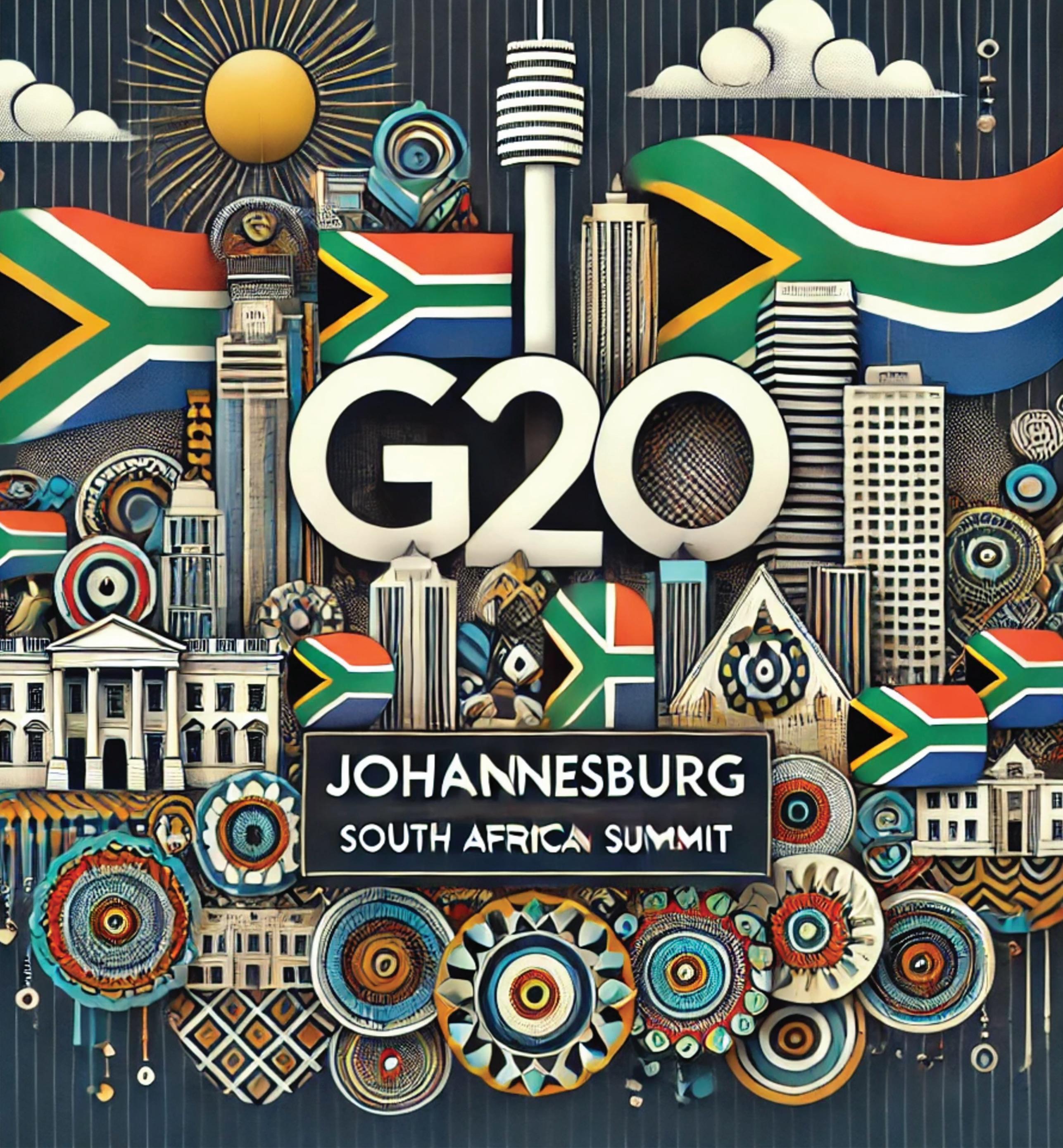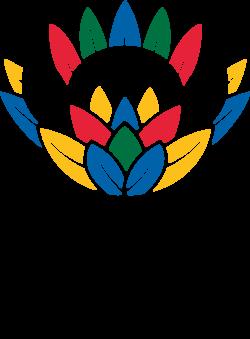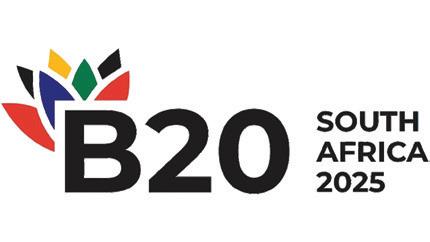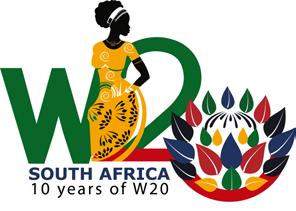
5 minute read
South Africa: A Pioneering Voice in Leading the Women 20 Engagement Group
Narnia Bohler-Muller head of delegation of W20SA and divisional executive at the Human Sciences Research Council
The Group of 20 (G20) is a forum of the largest economies in the world that meet regularly to discuss the most pressing issues facing the global economy. Together, the G20 accounts for more than 80% of world GDP, 75% of global trade and 60% of the population of the planet. In 2023 the African Union (AU) joined the G20.
Brazil handed the Presidency over the South Africa in December 2024 and South Africa holds the G20 presidency ntil November 30, 2025, when we pass the baton to the United States of America.
Women 20, better known by the acronym W20, is one of the G20’s official engagement groups in the social track focused on promoting gender equity and women’s economic empowerment. Engagement groups are independent collectives in the Sherpa track led by individuals and organisations (civil society, academia, business) from the host country, who work with other organisations from G20 countries to develop and formally submit policy recommendations to G20 leaders for consideration. W20 South Africa works closely with the Women’s Empowerment Working Group in the Ministerial Track as well as G20 EMPOWER.
Women 20 was established during Australia’s presidency in 2014 and had its first meeting in Turkiye in 2015 and, like all other engagement groups, aims to recommend policies and commitments to the leadership of G20 countries.
The W20 Brazilian Presidency (2024) focused on five thematic areas: women’s entrepreneurship, women in STEM, the care economy, ending violence against women, and climate justice, with a transversal focus on race and ethnicity intersectionality. Amongst others, Brazil enhanced W20’s data management capabilities by implementing an innovative digital platform which the South Africa is taking forward.
W20 South Africa aims to continue the legacies of Brazil and all past Presidencies as we celebrate the 10th anniversary of W20.
G20 theme for the South African Presidency: Solidarity, Equality, and Sustainability. These themes where shared at the United Nations by President Cyril Ramaphosa in his address on 24 Sept 2024. “Through solidarity we seek to advance a unified effort and mutual support among member nations. By advancing equality we seek to ensure fair treatment, opportunities and advancement for all individuals and nations… irrespective of their economic status, gender, race, geographic location or other characteristics. Sustainable development is about meeting the needs of the present without compromising the ability of future generations to meet their needs.”
Under this umbrella the W20 theme for the South African Presidency is Women n Solidarity towards Sustainable SocioEconomic Development because the moral and economic case for gender equity is clear as illustrated by Christine Lagarde, Managing Director, International Monetary Fund (March 2017): “As countries around the world seek to grow their economies and reduce inequality, tapping into the huge potential of women can be a game changer.” W20 continues to reaffirm its commitment to achieving the UN Sustainable Development Goals (SDGs) particularly SDG 5 to advance women’s economic empowerment as a catalyst for sustainable development. →
The W20 Brazilian Presidency (2024) focused on five thematic areas: women’s entrepreneurship, women in STEM, the care economy, ending violence against women, and climate justice, with a transversal focus on race and ethnicity intersectionality. Amongst others, Brazil enhanced W20’s data management capabilities by implementing an innovative digital platform which the South Africa is taking forward.
The key objectives are to:
• Guarantee the inclusion of W20 recommendations in the Leaders Declaration
• Honour ten years of W20
• Build on initiatives to ensure the sustainability of W20
• Promote people centric advocacy through effective outreach and knowledge sharing
• Strengthen the voices of Africa and the
• Global South whilst remaining faithful to the global agenda.
The seven themes encapsulate a decade of effort, infused with a unique African and Global South perspective. With disability as a cross-cutting focus, the South African value of Ubuntu — “I am what I am because of who we all are” — will guide our work in solidarity toward women’s sustainable socio-economic empowerment.
The South African Presidency has established seven thematic areas: Entrepreneurship and Financial Inclusion; The Care Economy; Climate Justice and the Environment; Gender-Based Violence and Femicide; Health Equity for Women and Girls; Women, Land, and Agriculture; and Education, STEM, and the Digital Divide.
South Africa’s ascension to the leadership of the Women20 (W20) engagement group heralds a transformative chapter in our relentless pursuit of gender equality and women’s empowerment. This moment represents more than a symbolic milestone; it is a profound affirmation of our nation’s commitment to advancing the rights and opportunities of women and girls in all their diversity, alongside the most vulnerable groups globally.
With its breathtaking landscapes, warm hospitality, and a steadfast dedication to the rule of law, South Africa has proudly stood as a beacon of resilience and potential since the advent of democracy in 1994. Anchored by a constitution revered for its commitment to justice, democracy, and human dignity, our identity as a nation is encapsulated in the Preamble, which declares our intention to:
• Recognize past injustices and honor those who fought for justice and freedom.
• Build a united society founded on democratic values, social justice, and fundamental human rights.
• Heal divisions and improve the quality of life for all citizens.
This foundational ethos mirrors South Africa’s role on the global stage
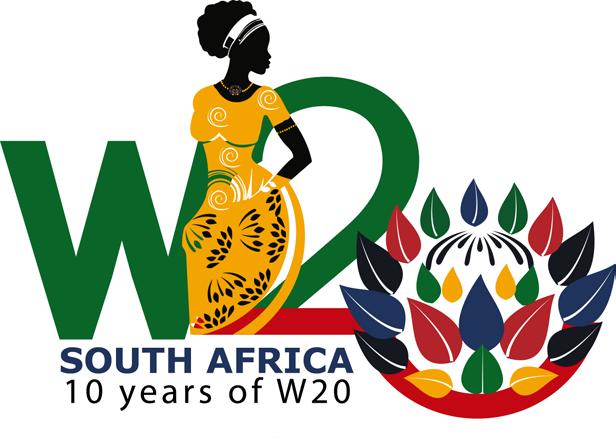
Investing in women’s financial inclusion is not simply a moral imperative; it is an economic necessity. Empirical studies consistently demonstrate that empowering women fosters community-wide benefits, generating sustainable development, stability, nd prosperity.
Beyond systemic barriers, South Africa’s leadership in the W20 paves the way to confront global challenges like genderbased violence and femicide (GBVF), climate change, food and water security, and financial and digital inclusion. It is vital that women’s perspectives and innovative solutions are at the forefront of policy discussions and decision-making processes. Collaboration with allies across sectors enables the creation of gender-responsive policies that champion equity, resilience, and progress for future generations.
As South Africa’s first democratic president Nelson Mandela profoundly stated, “Freedom cannot be achieved unless women have been emancipated from all forms of oppression.” Guided by this vision, South Africa stands firm in the belief that breaking down barriers and fostering pathways for women to lead will build institutions that are more inclusive and representative, and ultimately more productive.
This historic moment would not be possible without the unwavering commitment of our partners and supporters:
— a nation inspired by unity and intent on uplifting others.
As the first African nation and the fourth from the Global South following Indonesia, India and Brazil to hold this esteemed position as president of the G20. South Africa steps into the international spotlight with a unique opportunity to amplify the voices of women and girls from diverse communities. The W20’s core mission to promote gender-inclusive economic growth aligns seamlessly with our national values.
Under South Africa’s leadership, the goal is to champion policies that empower women economically, socially, and politically, addressing long-standing systemic barriers such as:
• Gender pay disparities.
• Limited access to education, healthcare, and resources.
• The disproportionate burden of unpaid care work.
Investing in women’s financial inclusion is not simply a moral imperative; it is an economic necessity. Empirical studies consistently demonstrate that empowering women fosters community-wide benefits, generating sustainable development, stability, and prosperity.
• Co-chair Ms. Sibulele Poswayo and grassroots activists amplify the voices of marginalized women and girls.
• Volunteer delegates from business, civil society, and academia graciously contribute their time and expertise.
• Funders such as GIZ and IDRC recognize the value of our work and invest in its impact.
• Knowledge partners commit to advancing research and collaboration to ensure the W20’s success.
Special gratitude is extended to iSAW for providing an online platform that enhances continuity across presidencies, and to the Human Sciences Research Council (HSRC) under the leadership of CEO Prof. Sarah Mosoetsa, whose support fortifies our efforts.
As we embark on this dynamic journey leading the W20, South Africa commits to fostering meaningful change and elevating voices that have too often gone unheard. We are ready to seize this unparalleled opportunity to construct a world rooted in justice, equity, and dignity for all.
We look forward to welcoming you to our Inception Meeting in May and the Summit in October as we pave the way forward, together in the spirit of solidarity and ubuntu. ■
